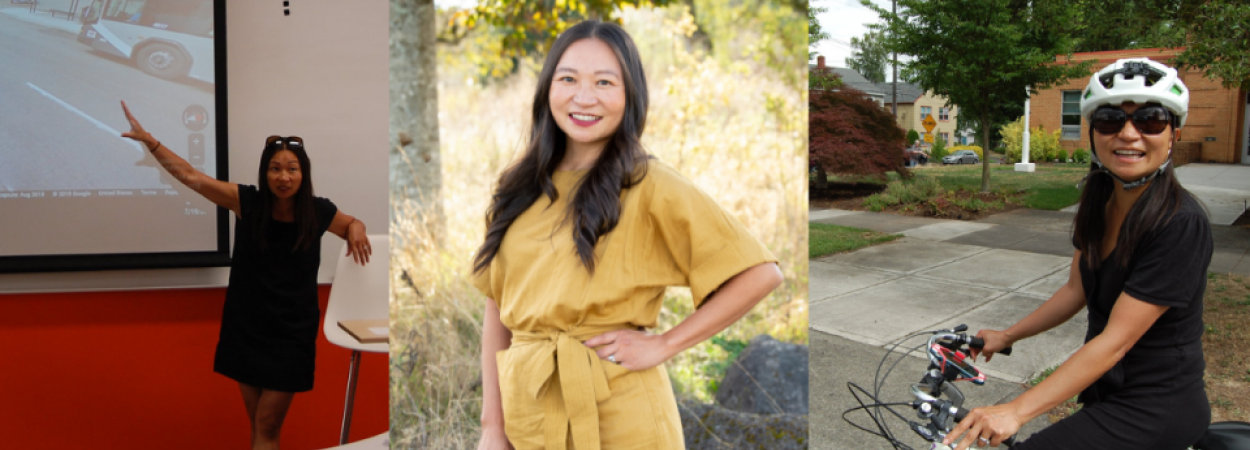After 17 years of service to TREC, Portland State University's Transportation Research and Education Center, associate director Hau Hagedorn is moving on to a new position as the Community Investments Manager for Oregon Metro. We will miss her as a colleague, as a model for transportation photos (here she is on the cover of our 2022 Annual Report) and as a seemingly inexhaustible source of energy and inspiration!
During her time at TREC, Hau devoted tireless efforts to improving access to transportation and mobility for people of all ages, communities, and incomes. Her perseverance and commitment have been recognized in the form of numerous accolades and awards. In 2020, she received the CUTC-ARTBA Award for Administrative Leadership from the Council of University Transportation Centers (CUTC) and the American Road & Transportation Builders Association (ARTBA), and the same year she was appointed Chair of Oregon's Bicycle and Pedestrian Advisory Committee. Earlier this year she was part of an interdisciplinary team of educators who traveled to Vietnam and Hawaii looking for new curriculum to support PSU's newly established Pacific Islander & Asian American (PIAA) Studies Program.
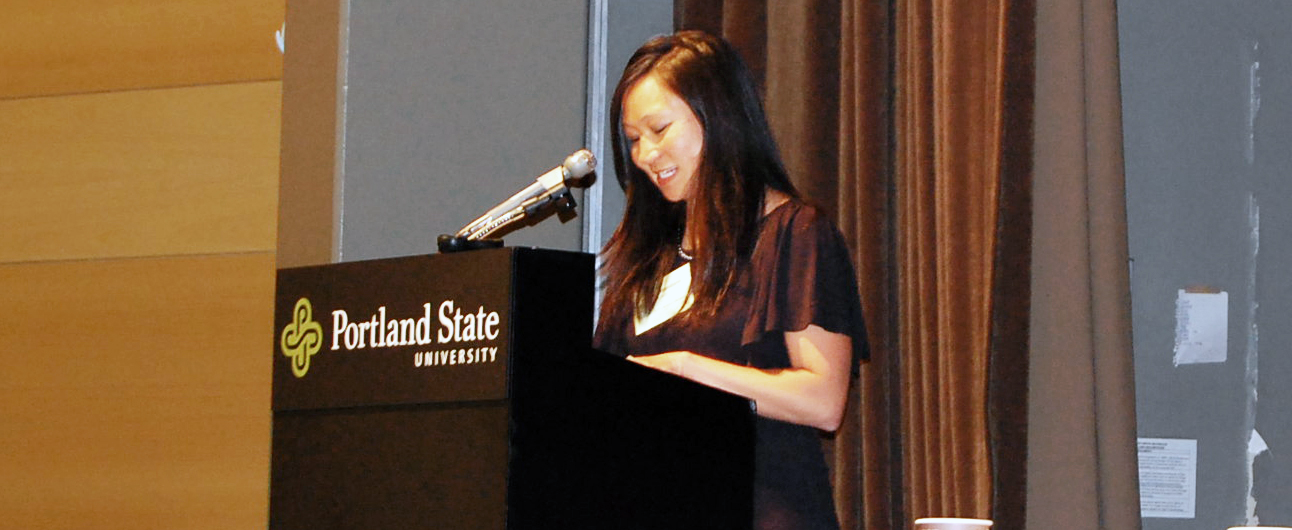
Hau Hagedorn speaks at the 2011 Council of University Transportation Centers (CUTC) summer meeting
In addition to managing the research program for two USDOT-funded university transportation centers based at PSU, OTREC (Oregon Transportation Research and Education Consortium) and NITC (National Institute for Transportation and Communities), Hau served as director of the Initiative for Bicycle and Pedestrian Innovation (IBPI), which delivers research-based professional development programs to dozens of transportation professionals each year. For the past eight years, Hau has helped develop and administer annual summer camps for high school students focused on transportation. If that wasn’t enough, Hau completed a second masters degree while at PSU, in Public Administration. Her thesis project, "Policy Implications of ORS 366.514 – The Oregon Bike Bill," offered a contextual analysis of the bill and its limitations. Read BikePortland's 2022 coverage of her research.
Hau’s impact extends beyond PSU and TREC. She has been very active in the Transportation Research Board, serving on several committees, as well as serving in numerous roles related to transportation in the Portland region and Oregon including TriMet's Crash Advisory Committee, the City of Portland's Pricing Options for Equitable Mobility group, ODOT's Region 1 Area Commission on Transportation, and the Oregon Bicycle and Pedestrian Advisory Committee. Hau could also be counted on to bring fun to our work, from Zoom holiday party Karaoke during the pandemic, to bingo networking at NITC receptions and participating in activities like a Thriller Flash Mob on the PSU campus.
See below for a quick stroll down memory lane as we wish Hau the best in her future endeavors.
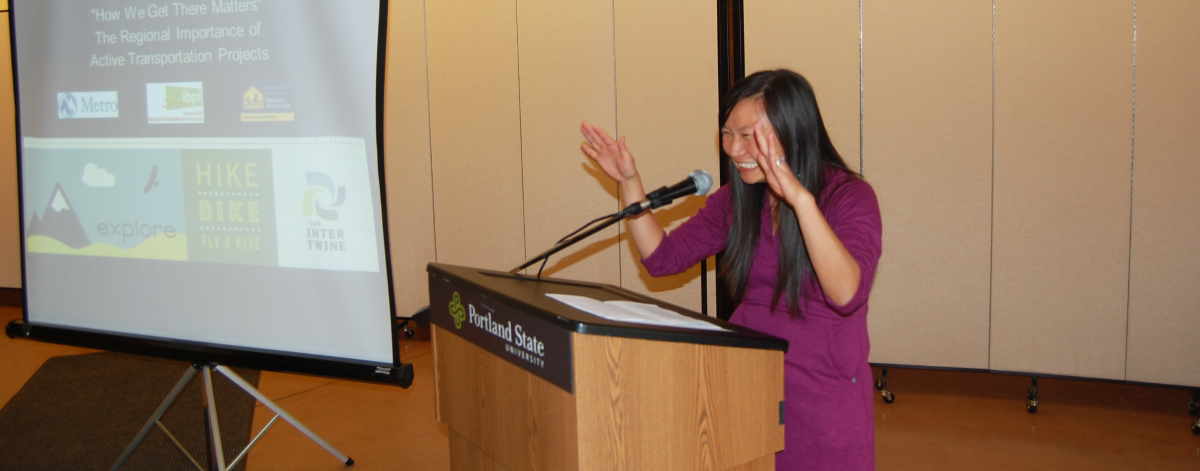
Hau warms up the crowd at the 2015 Intertwine Alliance forum

Hau at the 2012 TRB Reception, with TREC's John MacArthur and Roger Lindgren of Oregon Tech conversing in the background

Jennifer Dill and Hau Hagedorn with an Elvis impersonator at a conference reception

Hau at the 2014 TRB reception with B. Starr McMullen of Oregon State University
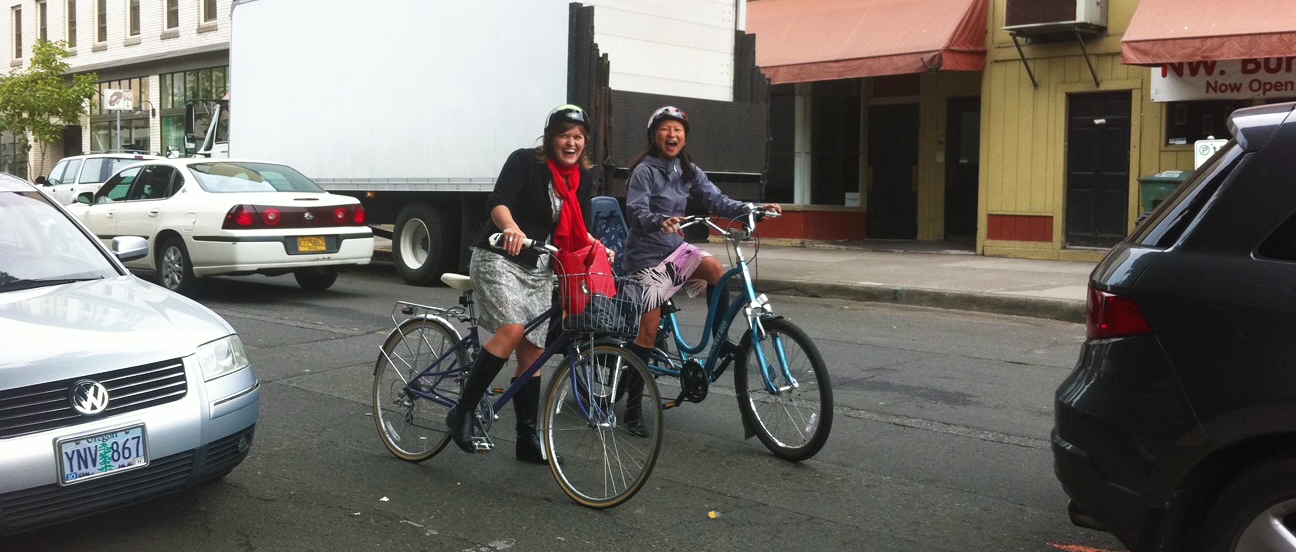
Hau Hagedorn and Kelly Clifton on bikes (Clifton was a PSU professor and is now at the University of British Columbia)
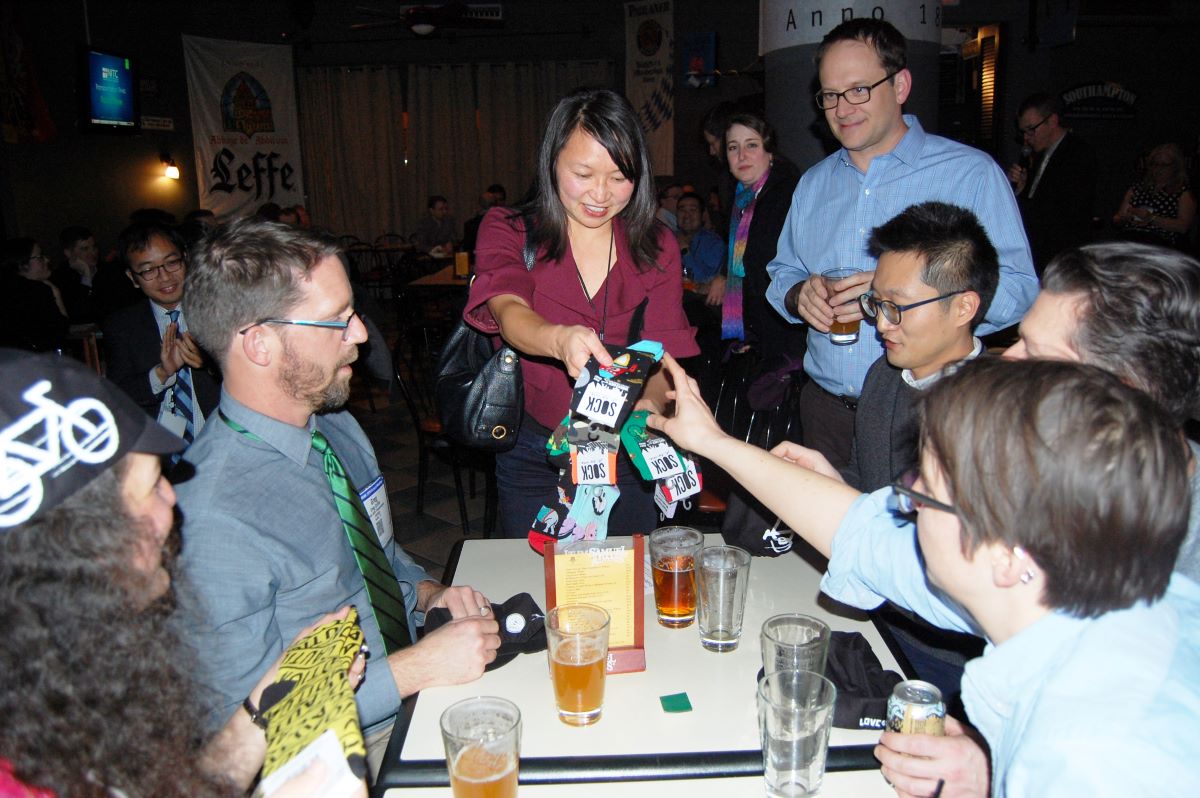
Hau hands out socks as a trivia prize at the 2016 TRB Reception
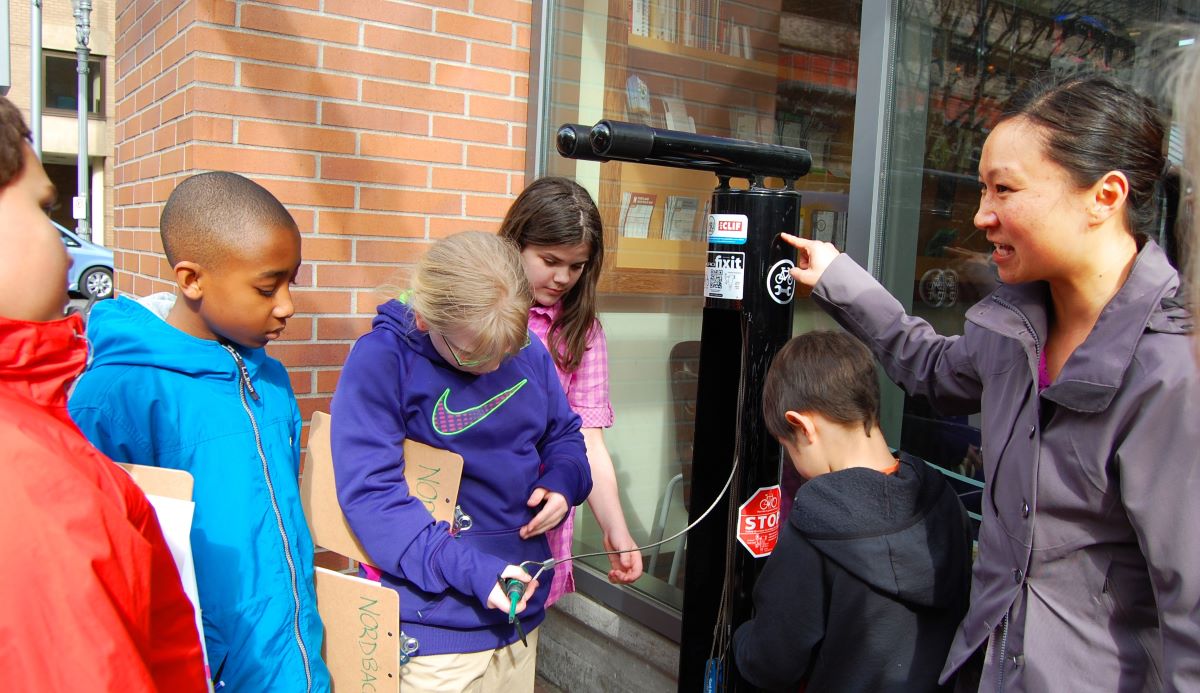
Hau leads a group of sixth graders on a 2013 transportation tour
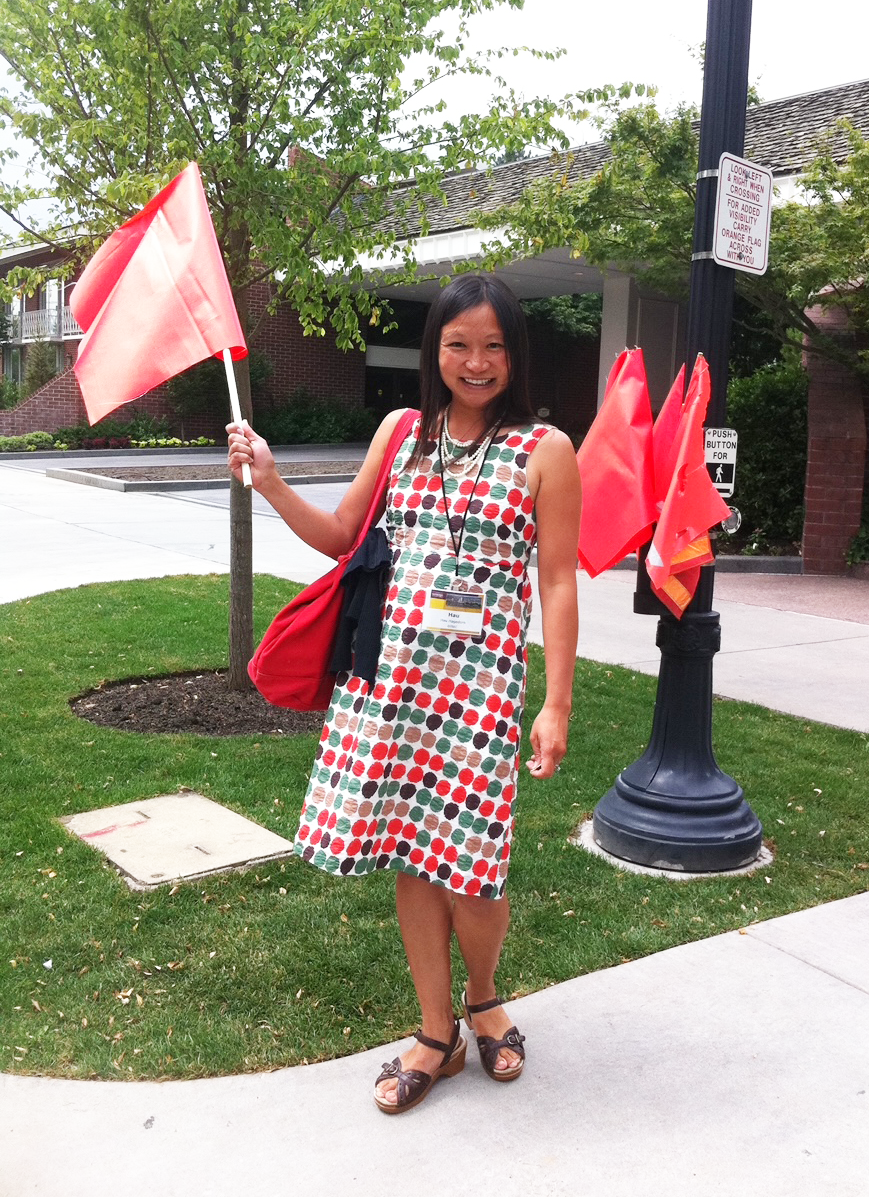 Left: Hau Hagedorn demonstrates a pedestrian crossing flag in Salt Lake City, Utah.
Left: Hau Hagedorn demonstrates a pedestrian crossing flag in Salt Lake City, Utah.
Portland State University's Transportation Research and Education Center (TREC) is home to the U.S. DOT funded National Institute for Transportation and Communities (NITC), the Initiative for Bicycle and Pedestrian Innovation (IBPI), PORTAL, BikePed Portal and other transportation grants and programs. We produce impactful research and tools for transportation decision makers, expand the diversity and capacity of the workforce, and engage students and professionals through education and participation in research.

